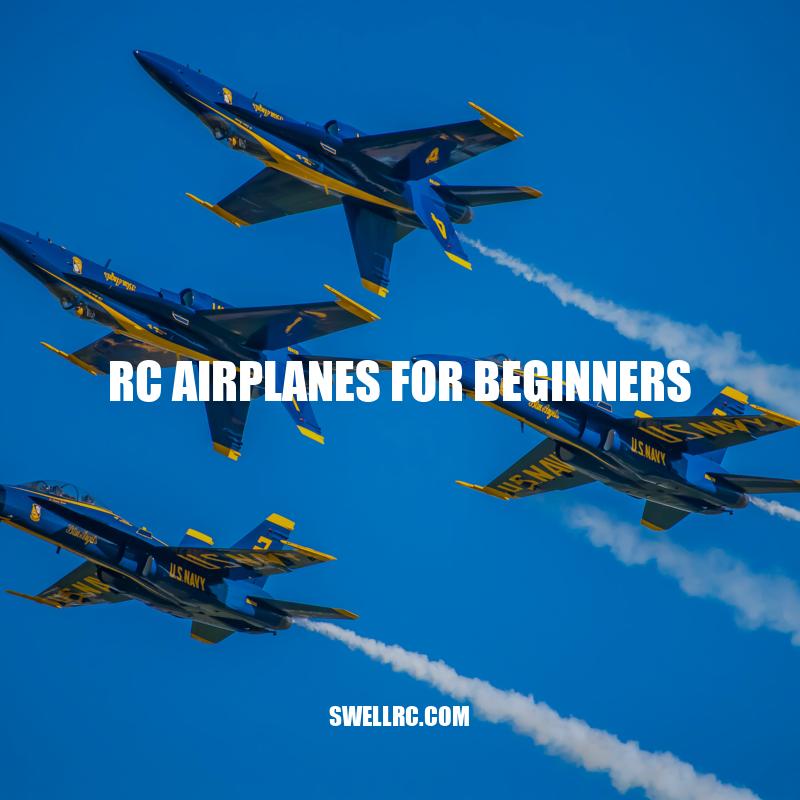Beginner’s Guide to RC Airplanes: Choosing and Flying the Right Model
RC airplanes are a popular hobby for people of all ages. These remote control aircraft are a great way to experience the thrill of flying without leaving the ground. However, for beginners, the vast array of models and components can be overwhelming, which is why it’s important to start with a basic RC airplane that matches the pilot’s skill level. In this article, we will discuss the different types of RC airplanes for beginners, their components, how to choose the right model, and tips for safe and successful flying. We will also cover basic maintenance and repair to help you get the most out of your RC airplane.
Trainers: Introduction to RC airplanes for beginners.
Different RC airplanes suit different skill levels, making it essential to choose the right model that matches your experience. As a beginner, it’s recommended to start with a trainer model to learn the basics of flight and handling. However, other options are available for those who want to try something different. Gliders are an excellent choice for those who want to fly without a motor, such as by using wind currents. Park flyers are great for those who want to fly in small spaces. They are small, lightweight, and maneuverable, making them ideal for flying in parks or backyards. Some popular RC airplane models for beginners include the HobbyZone Sport Cub S2 and the E-flite Apprentice STS.
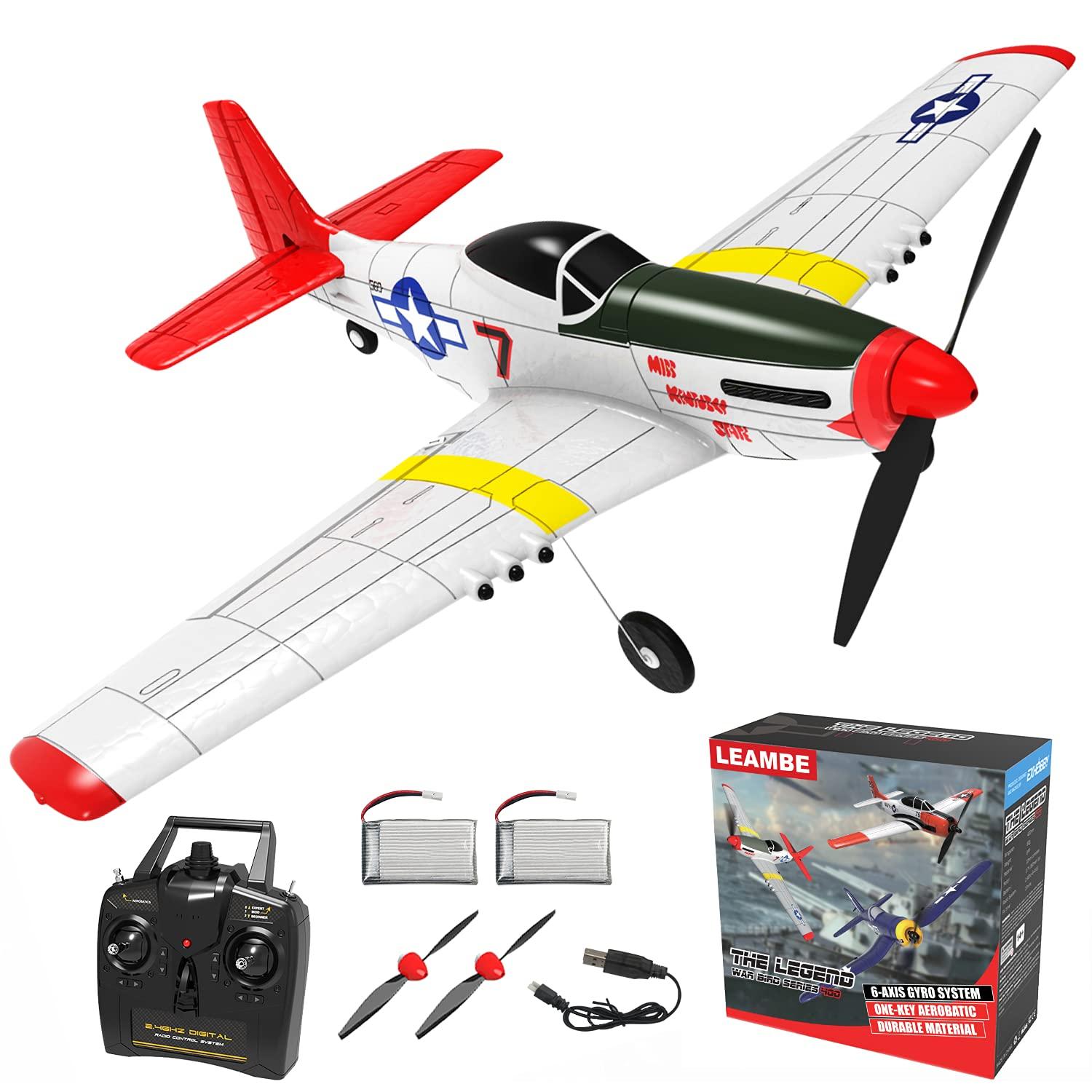
What are some popular RC airplane models for beginners?
Some popular RC airplane models for beginners include the HobbyZone Champ, the Flyzone Sensei, and the E-flite Apprentice S 15e.
RC Airplane Components: Understanding the Basics
RC airplanes for beginners consist of various components that interact with one another to allow the plane to fly. The motor provides the power needed to turn the propeller and move the airplane through the air. The receiver receives signals from the transmitter and sends them to the servos that control the airplane’s movements. The transmitter is held by the pilot and sends signals to the receiver, indicating which direction the airplane should move in. Finally, the battery powers the receiver and servos, which turn the airplane’s wings, rudder, and tail into the desired position. Notably, understanding the role of each component is essential to ensure the safe and successful operation of the airplane.
To get started with RC airplanes for beginners, it is important to choose the right plane. Some good options for beginners are the HobbyZone Sport Cub S 2 or the E-flite Apprentice STS. These planes are designed to be stable and easy to fly, allowing beginners to learn the basics of RC airplane flight without too much difficulty.
Another important consideration when starting with RC airplanes for beginners is the controller. A good option for beginners is the Spektrum DXe transmitter. It is easy to use and offers a range of features that can be adjusted as the pilot becomes more experienced. It is also compatible with a wide range of Spektrum receivers, which makes it easy to upgrade to more advanced models as needed.
Overall, starting with RC airplanes for beginners can be an exciting experience. By choosing the right plane and controller, and understanding the role of each component, beginners can learn the basics of RC airplane flight and develop their skills over time. For those looking for more information, websites such as Horizon Hobby and RCGroups offer a wealth of resources and advice for beginners in the RC airplane hobby.
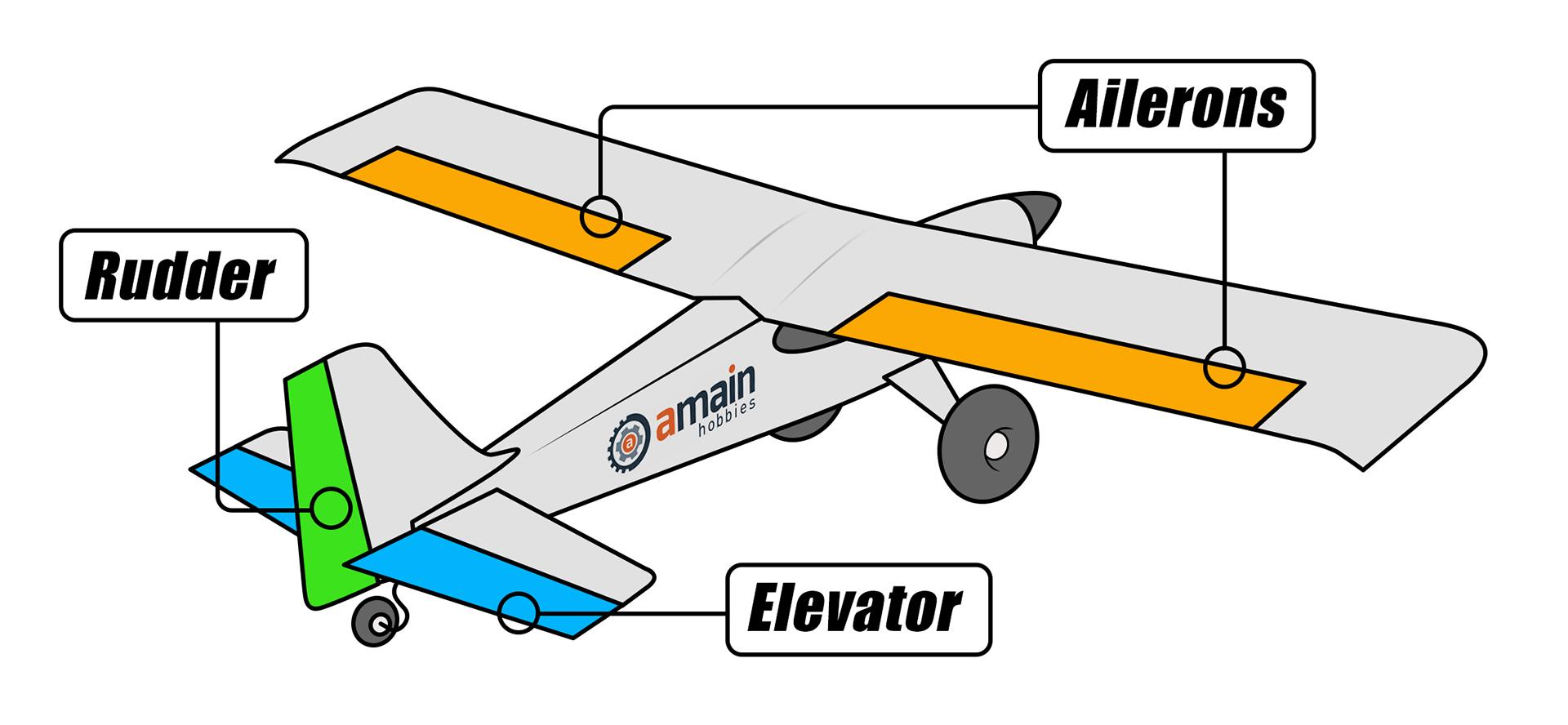
What are some good options for RC airplanes for beginners?
Some good options for RC airplanes for beginners include the HobbyZone Sport Cub S, the E-Flite Apprentice S 15e, and the Flyzone Sensei FS RTF.
Choosing the Right RC Airplane for Beginners
Before investing in an RC airplane, it’s crucial to select the right model that matches the beginner’s experience level. Here are some tips to help choose the right RC airplane for beginners:
- Consider Skill Level: Beginners should start with a basic model and gradually build skill and confidence. Experienced fliers can handle more complex models.
- Choose a Model Type: Different types of RC airplanes are available for beginners, including trainers, gliders, and park flyers. Consider the type of flying environment, budget, and personal preferences when choosing a model.
- Get Advice: Seek advice from experienced fliers to help select the right model, receiver, transmitter, and battery. Joining an RC airplane club is an excellent way to get connected with the RC airplane community and to get advice from those who have flown for years.
There are many resources available for beginners looking to purchase an RC airplane, including online stores dedicated to RC hobbies. Some stores offer help in selecting the right model and components based on the customer’s needs and experience level. Additionally, there are many RC airplane clubs worldwide that offer support and advice to beginners, including online forums and video tutorials. By taking the time to consider skill level, model type, and getting advice from more experienced fliers, beginners can find an RC airplane that matches their needs and sets them up for a successful and rewarding hobby.
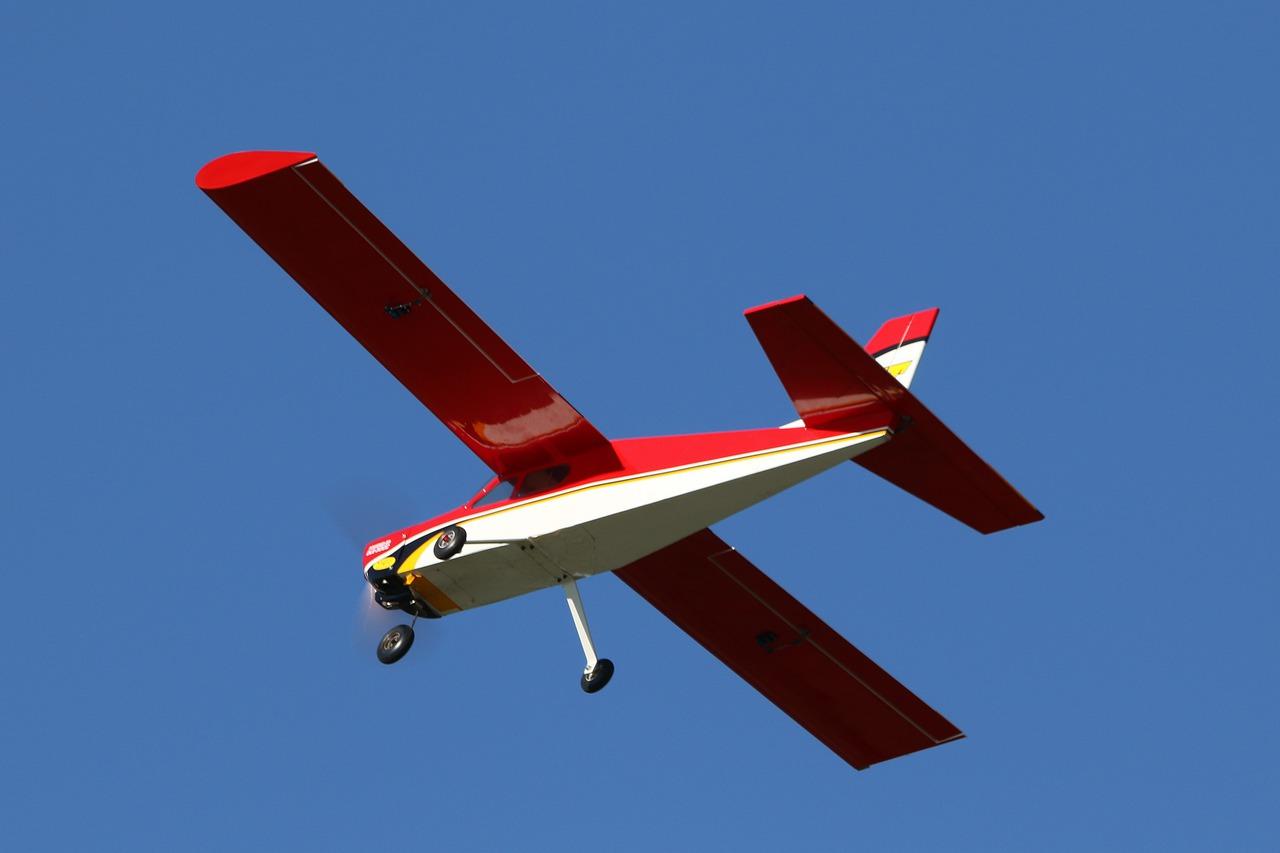
What types of RC airplanes are suitable for beginners?
The types of RC airplanes that are suitable for beginners are trainer planes, slow flyers, and park flyers.
Flight Tips for Beginners
Flying an RC airplane requires patience, practice, and attention to safety. Here are some tips to help beginners fly an RC airplane safely and successfully:
- Start with a Flat, Open Area: Find a large, open space, free from trees, buildings, and other obstacles to practice flying.
- Stay in Control: Keep the plane in sight at all times and avoid flying too high or too far away. Start with simple maneuvers to build confidence and skills.
- Practice Regularly: Regular practice will help build skills and confidence. Beginners should aim for short, low-risk flights and gradually increase flight time and complexity.
- Understand the Principles of Flight: Knowing the basics of how airplanes fly will help beginners understand how their RC airplane works and how to control it.
There are many resources available online to help beginners learn to fly RC airplanes safely and confidently. Some websites offer video tutorials and guidance on principles of flight, while others provide technical support and repair advice. Joining an RC airplane club can also be a great way to get advice and support from other fliers. By understanding basic flying principles, choosing the right model, and practicing regularly, beginners can enjoy the excitement and challenge of flying RC airplanes.
For RC airplanes for beginners, it is recommended to start with an easy-to-use, durable model, such as the HobbyZone Champ RTF, or the DANCHEE 1601 Upgraded RC Plane. These models are designed to be beginner-friendly and come with everything needed to start flying.
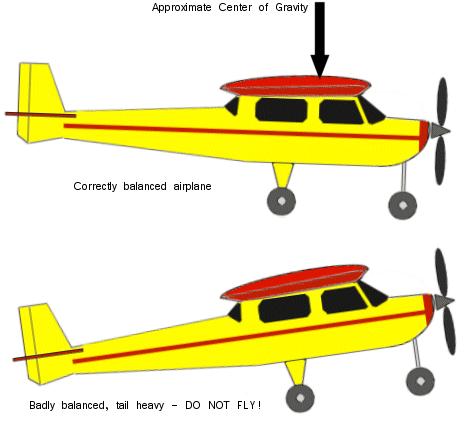
What are some recommended models of RC airplanes for beginners?
Some recommended models of RC airplanes for beginners include HobbyZone Champ, Dromida Twin Explorer, and HobbyZone Delta Ray.
Maintaining and Repairing RC Airplanes: Tips for Beginners
Proper maintenance and care are crucial for keeping an RC airplane in good working order. Here are some tips for maintaining and repairing an RC airplane for beginners:
- Maintain the Plane: Proper maintenance and care can help keep an RC airplane in good working order and extend its lifespan. This can include things like cleaning, battery care, and proper storage.
- Conduct Basic Repairs and Troubleshooting: Beginners should be able to handle basic repairs and troubleshooting themselves. This might include things like replacing a broken propeller or checking the battery voltage.
- Seek Help for More Advanced Repairs or Technical Issues: For more advanced repairs or technical issues, beginners may need to seek help from an experienced flier or a technical support team.
- Resources for Technical Support and Repair: There are online resources available, like forums and websites, where beginners can get help with technical issues or find guides on how to perform repairs.
If beginners encounter technical issues or need help with repairs, there are many online resources available. Websites and forums can provide guidance on basic troubleshooting and repairs, as well as more complex technical issues. Some RC airplane models also come with technical support from the manufacturer, which could be especially helpful for beginners. With the proper maintenance and care, an RC airplane can provide years of enjoyment and challenge for beginners and experienced fliers alike.
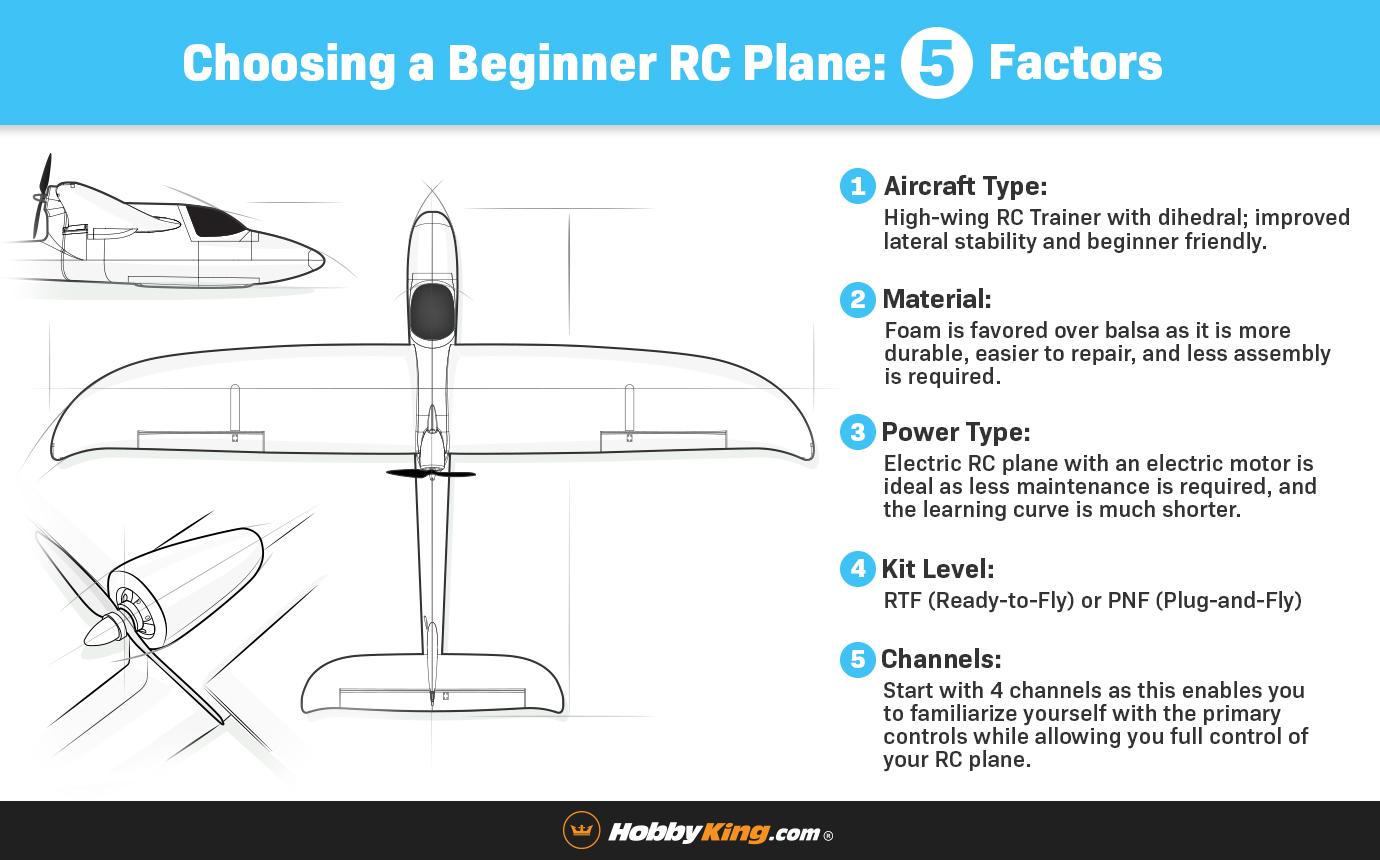
What online resources are available for beginners who need help with technical issues or repairs for their RC airplanes?
Online resources such as forums, instructional videos, and RC airplane community websites are available for beginners who need help with technical issues or repairs for their RC airplanes.
Conclusion and Resources
In conclusion, flying RC airplanes can be a thrilling and rewarding experience for beginners. Starting with a simple model and working up to more advanced designs can help build skill and confidence over time. Each step of the way, beginners should focus on safety, proper maintenance, and gradual skill-building. With practice and patience, even the most complex and challenging RC airplanes can be mastered.
For those interested in learning more, there are many online resources available. Websites like RC Universe, Flite Test, and the Academy of Model Aeronautics offer a wealth of information, forums, and communities for RC airplane enthusiasts. There are also countless instructional videos on YouTube that cover everything from building and flying techniques to repairs and troubleshooting. Attending local RC clubs or flying events can also be a great way to meet experienced fliers, get advice, and share tips and tricks.
In conclusion, with the right tools, knowledge, and practice, beginners can discover a rich and rewarding hobby in RC airplane flying.

